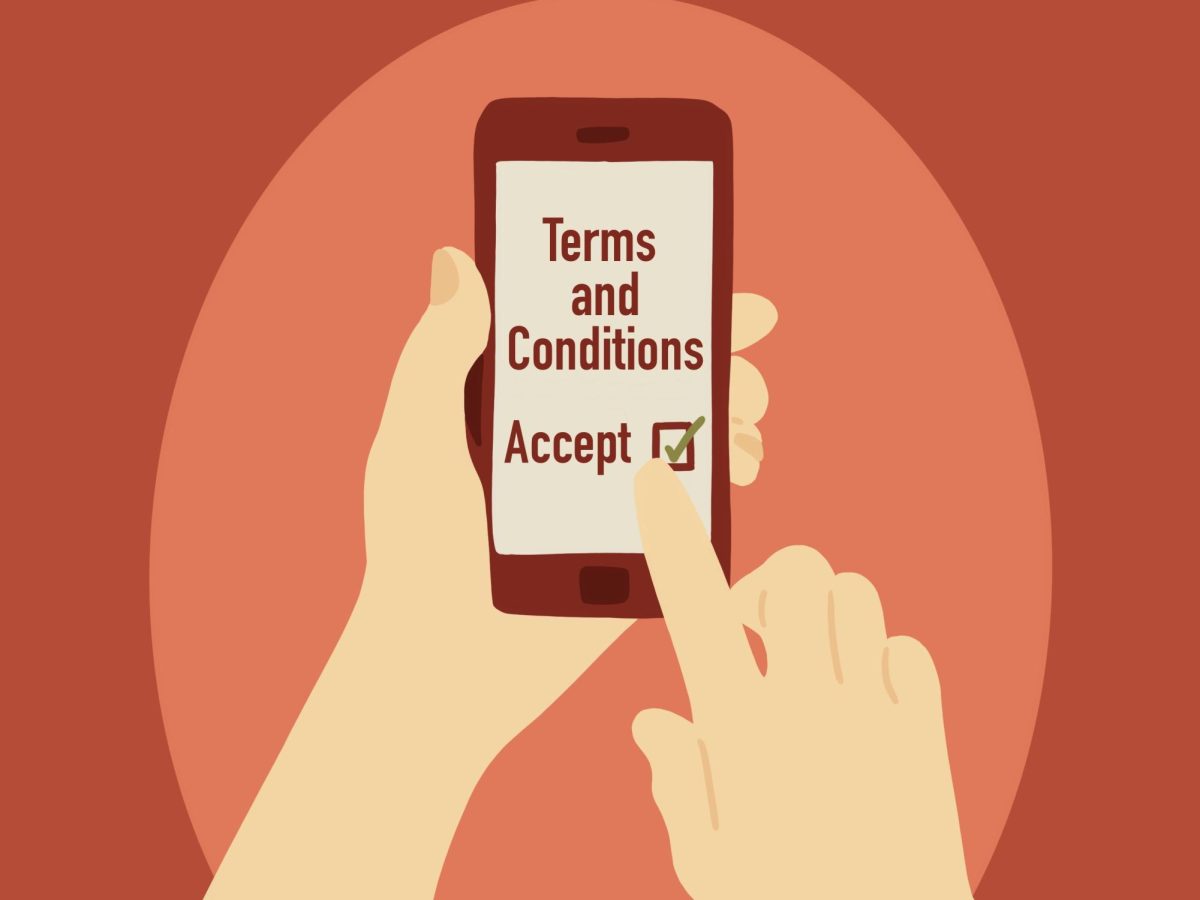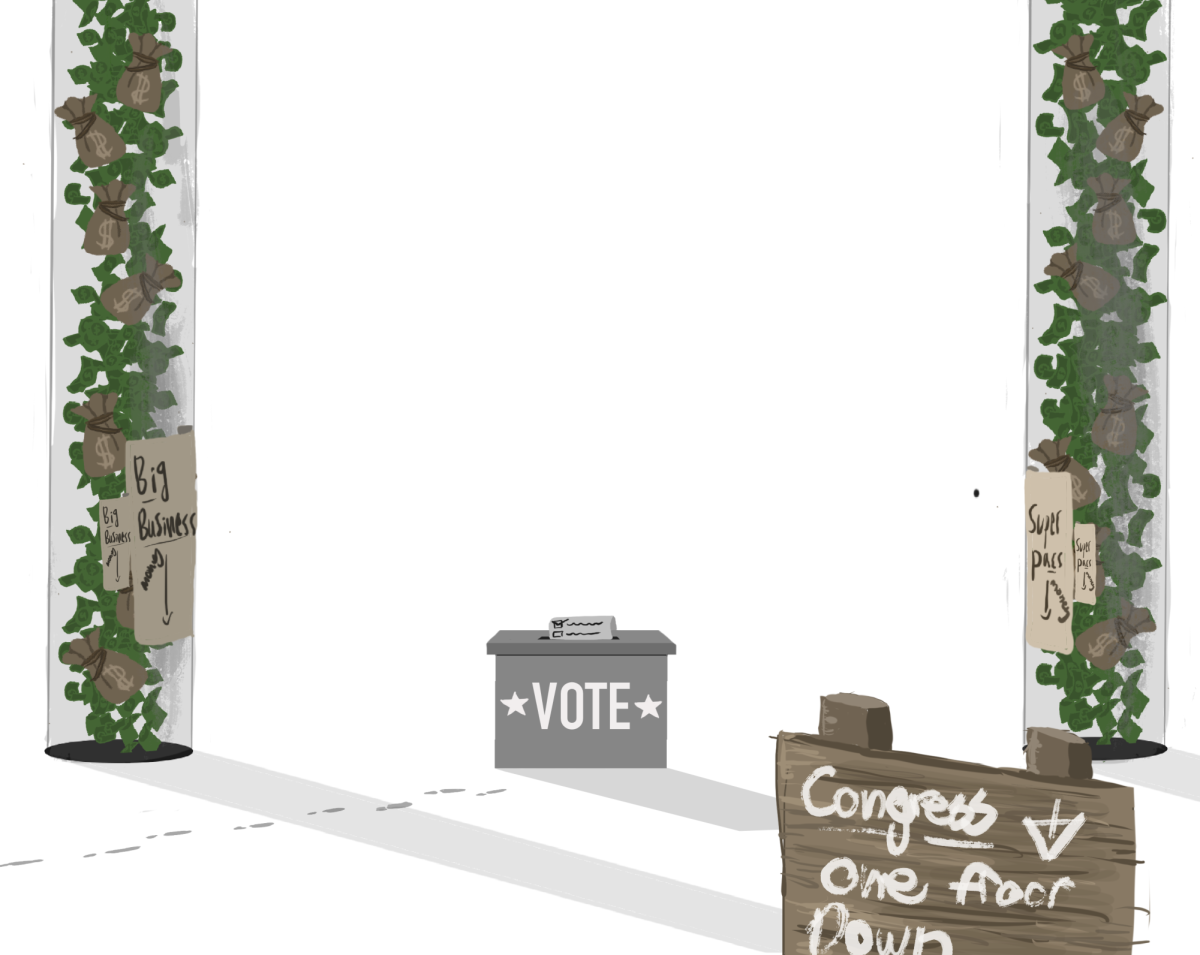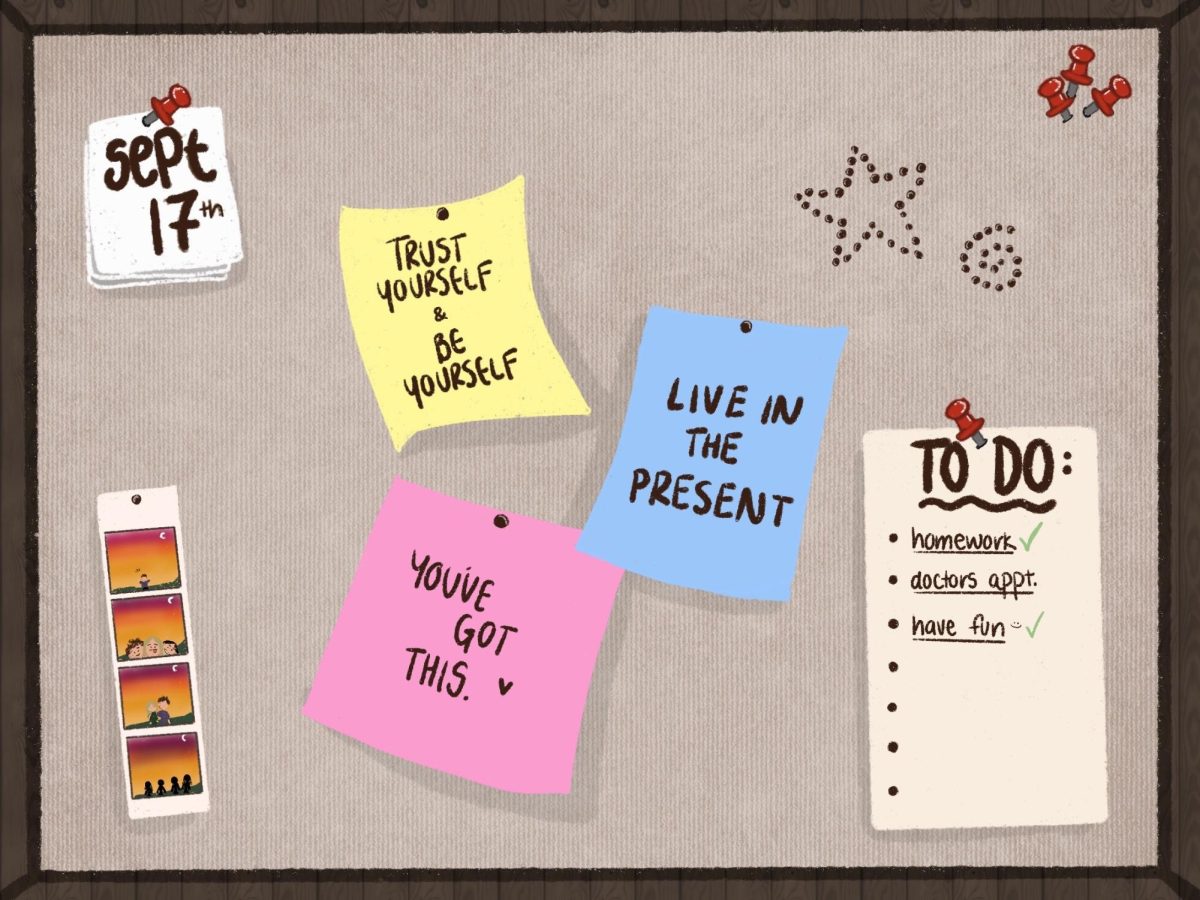Type in your email, create a password, and then accept a many page legal agreement. This is a three-step process which is in nearly everyone’s routine. Since most will probably not read the entirety of these agreements, a crucial question arises: What do you need to keep in mind when agreeing to these legal contracts?
According to the Pew Research Center, 36% of Americans never look at the terms and conditions before agreeing to them, and an additional 38% say they rarely even glance at them. If such a large number of people aren’t reading these, do you really need to? While it may not seem necessary, it is important to acknowledge what personal information you are handing over, and understand how companies use that information.
To further understand the importance of these terms and conditions, I interviewed Sara Berger, a lawyer who has extensive experience drafting these contracts with her own clients.
What are terms and conditions?
Berger described terms and conditions as simple as “contracts” between the platform and the individuals who are using it. Essentially, these serve as a way for companies to tell you what their platform is for, and how they expect you to use it. The ‘term’ is referring to how much time the ‘condition’ lasts. You can think of them as the constitution for a platform.
What are privacy policies?
Privacy policies “[explain] what kind of information [companies] collect about you, and then how they use it,” Berger said. Additionally, these policies are government-mandated in order to disclose exactly what users are agreeing to. With so many people ignoring them, it is only counterproductive.
Although privacy policies, terms, and conditions are made to inform the public, they are full of legal language (legalese), sometimes making them practically impossible for someone without a law degree to understand. Ms. Berger added, “I’m a lawyer and even I have to think about, ‘what does this mean?’” This demonstrates how confusing these binding contracts can be, and how easy it would be for a company to bury something which may drive away their potential customers.
TikTok’s Privacy Policy:
Recently, TikTok has been scrutinized by the United States government as they feel the platform may be a risk to national security, since their parent company is based in Beijing, China. However, this connection with the Chinese government is not the sole reason the U.S. is skeptical of TikTok; the content contained in their privacy policy also sounded alarms.
TikTok disclosed that they collect all sorts of private information from your location to creating and storing “voice prints” and “face prints”. What concerned Berger the most was Tik Tok’s policies on giving out this information, most importantly to law enforcement. She said “if they asked for it, [TikTok is] going to give it.” While this may not seem like a problem at first, it shows how irresponsible TikTok is with their information.
A prime example of this is the story of Alonzo Sawyer in the spring of 2022. He was arrested for allegedly assaulting someone on a bus, the proof being an apparent match on their facial recognition software. It took over a week for him to be freed. Police later found the one at fault for the crime, who was seven inches shorter and over 20 years younger then Sawyer.
What can you do?
Terms and conditions contain pages upon pages of legal jargon and complex loopholes. Many people lack the time and motivation needed to read through every one they encounter. So what can you do to avoid signing away your rights unknowingly?
One thing that is important to keep in mind is that your activity online is never truly anonymous. “Never do something online or in an email that you wouldn’t want published on a billboard,” Berger said. This statement Berger made demonstrates this perfectly. Knowing that your activity may not be anonymous is a great first step to being safe online.
Additionally, there is a site called “Terms of Service Didn’t Read”, also known as Tosdr, established in 2012, with the sole purpose of allowing users to check a website or app’s privacy rating. Tosdr gives these ratings based on how much information companies gather, and whether or not they sell your information to third parties. Using this site may not stop platforms from tracking you, but it still allows you to make a more well-thought-out decision on who you are willing to trust with your information.









